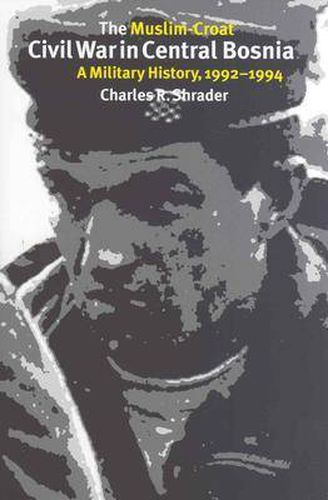Readings Newsletter
Become a Readings Member to make your shopping experience even easier.
Sign in or sign up for free!
You’re not far away from qualifying for FREE standard shipping within Australia
You’ve qualified for FREE standard shipping within Australia
The cart is loading…






In this volume, Charles R. Shrader offers a military history of a crucial conflict in Bosnia between two former allies. When the Bosnian Serbs and their Serbian allies attacked Bosnia-Herzegovina in March 1992 the Bosnian Croats and Muslims collaborated to defend themselves. As Serbian pressure increased and it became clear that the West would not intervene, the two allies began to stake out their own claims. Drawing from cases presented before the International Criminal Tribunal for the former Yugoslavia, Shrader describes the organization and tactical doctrine of the Croatian Defence Forces and the Muslim-led Army of Bosnia-Herzegovina. He analyses the strengths and weaknesses of the two sides in such fields as communications, training and logistics. In a conclusion which some may find uncomfortable, Shrader argues that far from being the attackers, the Bosnian Croats in Central Bosnia were clearly out numbered, outgunned and on the defensive.
$9.00 standard shipping within Australia
FREE standard shipping within Australia for orders over $100.00
Express & International shipping calculated at checkout
In this volume, Charles R. Shrader offers a military history of a crucial conflict in Bosnia between two former allies. When the Bosnian Serbs and their Serbian allies attacked Bosnia-Herzegovina in March 1992 the Bosnian Croats and Muslims collaborated to defend themselves. As Serbian pressure increased and it became clear that the West would not intervene, the two allies began to stake out their own claims. Drawing from cases presented before the International Criminal Tribunal for the former Yugoslavia, Shrader describes the organization and tactical doctrine of the Croatian Defence Forces and the Muslim-led Army of Bosnia-Herzegovina. He analyses the strengths and weaknesses of the two sides in such fields as communications, training and logistics. In a conclusion which some may find uncomfortable, Shrader argues that far from being the attackers, the Bosnian Croats in Central Bosnia were clearly out numbered, outgunned and on the defensive.